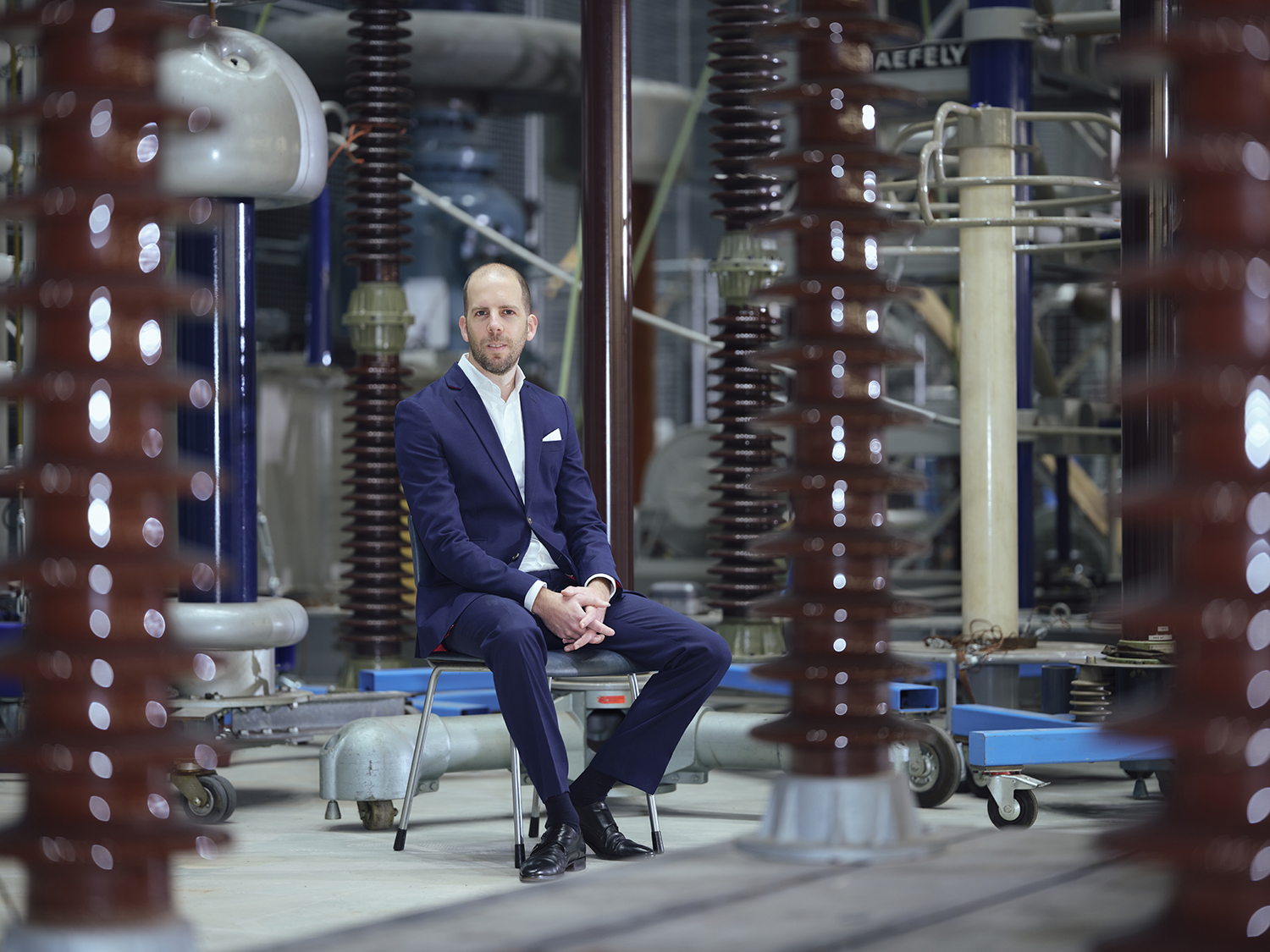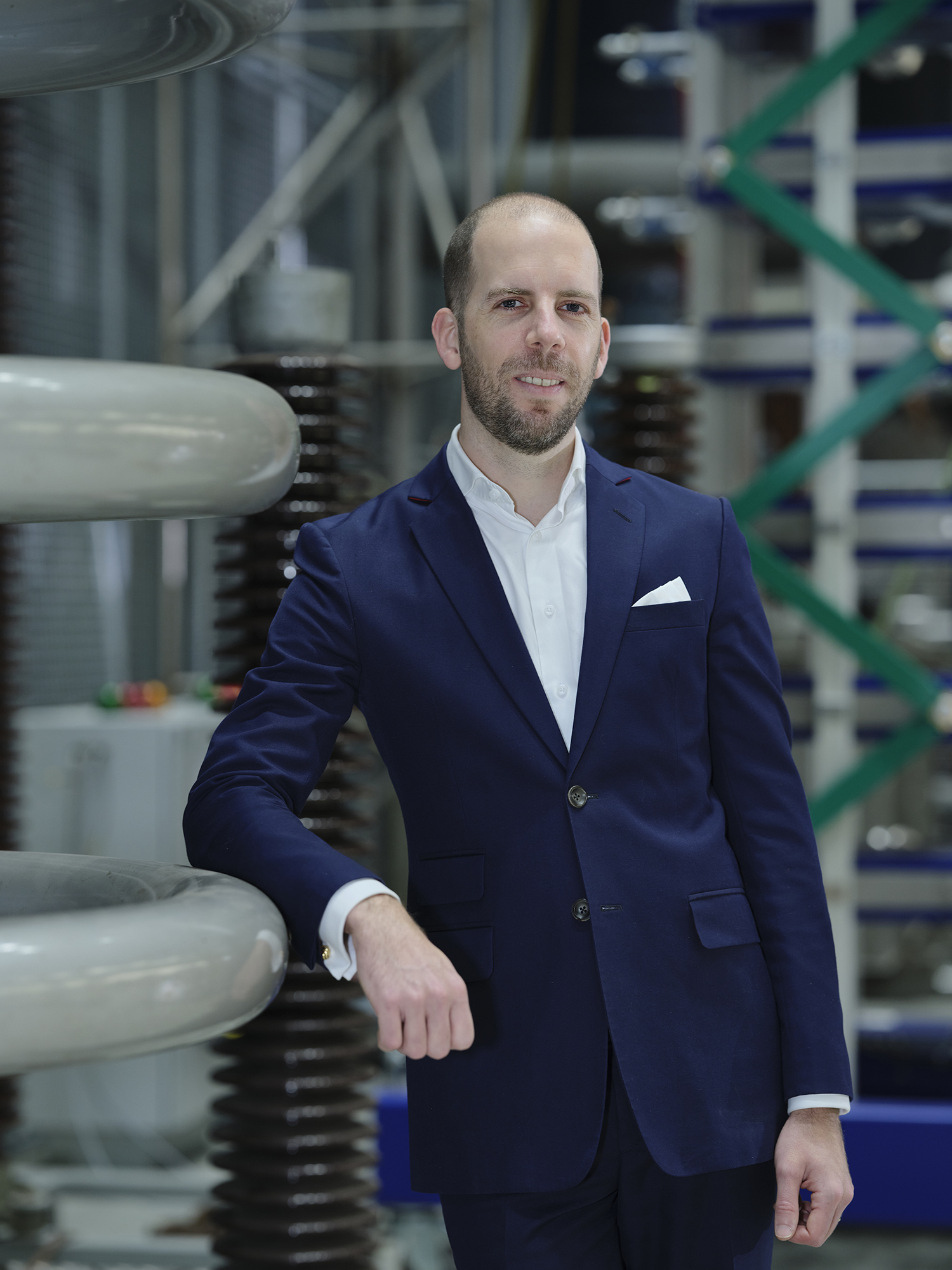‘We have just one interest, and that is society’s interest’
The Fukushima disaster prompted alumnus Mike ten Wolde to start working in sustainable energy. He is in now in the right place at TenneT. The company is working hard on the challenges of the energy transition.
Ten Wolde is completely at home at TenneT. The combination of technology and finance has been his area of interest for a long time. During his Mechanical Engineering bachelor he did a minor in finance, after which he looked for a master’s which would feed his passion for engineering and finance. He found Transport, Infrastructure and Logistics, the joint degree programme of three faculties: Mechanical, Maritime and Materials Engineering (3mE); Civil Engineering and Geosciences (CEG); and, Technology, Policy and Management (TPM). “I filled my free time with master’s subjects on financial mathematics,” he explains. He also studied at the ETH Zurich for six months that, jointly with the University of Zurich, offered a quantitative finance programme. “Among the subjects I took at the ETH Zurich were modules on energy economics which looked at the financial impact of energy. I learned the term ‘Dutch Disease’ there. It was called the Dutch Disease because in the 1960s, the value of the guilder rose and rose because of the gas fields that were discovered and the sale of part of them abroad. The effect was to worsen the competitive position of industry.”
The start of the energy transition
Ten Wolde was studying at ETH Zurich when the Fukushima nuclear disaster happened in 2011. “Things happened far away, but also closer to home. Japan quickly shut its nuclear power plants and started importing more coal. This increased CO2 emissions. Germany followed suit and started burning more lignite,” he explains. “Ever since then I have been announcing to all my friends that we need to move to sustainable energy. But people overlook the most important thing: the infrastructure that you need to do so.” This is what he is now working on at TenneT. Last year, after years of working on mergers and acquisitions as a consultant, and a year at an investment company, he asked himself the question ‘what do I want to commit to?’. “Just then I came across the vacancy at TenneT. Now I can turn my interests into my work.”
Scientists should take a standpoint more often
As a business development advisor at TenneT, he finds himself at the very heart of the energy transition. Over the next nine years, TenneT will invest five to six billion euros every year in the infrastructure, new technology and digitisation needed for the energy transition. While the challenges are great, Ten Wolde is confident. “We know where we are going. If we all make an effort it should work. It is viable financially – it will take just a few percent of our gross domestic product – and feasible technically. We do need to make more haste in terms of policymaking, though. Of the eight to ten years that TenneT needs for infrastructure projects, six or seven are spent obtaining permits. If we want to speed up the energy transition, we will have to make the permit application procedure shorter.”
Bicycle maker
His overriding memory of TU Delft was as a place where you could do so much if you studied hard. And this is what he did. “My group of graduates got the highest grade of that year for our final bachelor’s project, which is a great memory.” To do justice to the nickname fietsenmakers (bicycle makers), they designed a method to model and test bicycle designs. “We worked with the bicycle manufacturer Batavus to make an adjustable frame so that you could size the bike to certain specifications. We looked at things like what would happen if you put a child’s seat in front. We obtained data from all sorts of sensors to see if it would work as well as in our models. We then had test persons ride a trail and fill in a questionnaire on their experiences. One of the things that emerged in that period is that you need to steer a little to the right to make a left hand turn. You swing out a bit. We saw this in our data. Our research was also published at the time.”
Engineer for life
He has always stayed in contact with his alma mater. He has been a member of the alumni panel for years. “We try to help the alumni team by giving the right care to alumni. To my mind you always need each other, throughout your life. You are an engineer for life. How can universities keep their students loyal? We have actually reached that goal thanks to the current alumni team that is doing great work. If all the conditions are right, that loyalty will follow.”
If he could change anything at TU Delft, it would be the participation in the societal debate. “Scientists should take a standpoint more often. Some TU Delft professors do so. TU Delft has an enormous amount of knowledge and the best experts in all sorts of subjects. Let them share their knowledge with the politicians that make policy. I always say, including to my colleagues at TenneT, ‘We have just one interest, and that is society’s interest’.”

